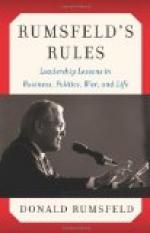FIGHTING AGAINST ODDS
November 29th, 1899
Two factors in the present war were impressed upon my mind at the beginning: first, that the British Army was never in better condition as regards the zeal and skill of its officers, the training and discipline of the men, and the organisation of the field services; secondly, that the Government had deliberately handicapped that Army by giving the Boers many weeks’ clear start in which to try with their whole forces to overwhelm the small British parties sent out at haphazard to delay them. The whole course of events up to now has been underlining these two judgments. The British troops gave proof of their qualities at Talana Hill, at Elandslaagte, and on the trying retreat from Dundee. There is no more difficult task in war than a frontal attack upon a position defended by the repeating rifle. Good judges have over and over again pronounced it impossible. But the British troops have done it again and again. General Hildyard’s attack on Beacon Hill, an arduous action for a definite purpose which was effected—the re-opening of the railway from Estcourt towards the south—was a creditable achievement on the Natal side. On the Cape side Lord Methuen’s advance from Orange River is an example of the greatest determination and energy coupled with caution on the part of the general, and of the most brilliant courage on the part of the troops. I thought it probable that so skilful a tactician as Lord Methuen would combine flank with frontal attacks. It seems that the conditions gave him little or no opportunity to do that, and he has had three times to assault and drive back a well-posted enemy. At Belmont, on the 23rd, and at Enslin, on the 25th, Lord Methuen had a numerical superiority large enough to justify an attack in which heavy loss was to be expected. The losses were not exceptionally great, and this fact proves that the British troops are of very much higher quality than their adversaries. At Modder River, on the 28th, the numbers were practically equal. The Boers were strongly entrenched and concealed, and could not be out-flanked. That they were driven back at all is as proud a record for our troops as any army could desire, for the attacking force ought to have been destroyed. The engagement may well have been “one of the hardest and most trying in the annals of the British Army,” and if the victory is a glory to the soldiers, the resolve to attack in such conditions reveals in Lord Methuen the strength of character which is the finest quality of a commander.




